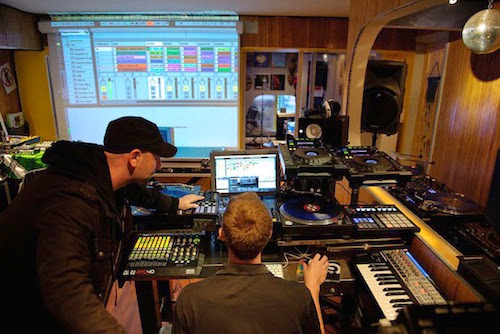
It used to be that when you were working your way up the food chain as a music producer, you’d hone your chops with indie artists, at first not signed to a label, then signed to smaller labels. Today this is a fact of life for all production pros whether you’re just starting or are a seasoned veteran producer.
One of the major questions that producers new to the game often ask is, “How do I determine a budget?” Here’s an excerpt from my Music Producer’s Handbook that will provide 8 questions that you can ask your client (even if it’s a label), in order to better understand what your client’s needs are, and how you can best fulfill them.
“If your artist is signed to a label, most likely that they’ll say, “We need you to bring this project in for xxx dollars.” That makes your life a bit easier since you already have a major parameter to work with, so you’ll just try to fit everything into the financial box that you’ve been given. But most likely, your project will start with the words, “What do you think it will cost……?” That makes your job a lot more difficult since you’ll need to gather up a lot more info before the question can be answered. Assuming that you’re already familiar with the artist and her material, here’s what you’ll need to find out:
1. How many songs? The more songs, the more time you’ll need to complete the project. The more time, the more money it will cost.
2. How will this be released? If the final release will be in a CD or vinyl format, you’ll have to figure additional mastering costs as well as a sequencing session to test the song order. If the release is only intended for online distribution, that will also impact your budget since there won’t be any income from the product to recoup the costs.
3. Will the costs of manufacturing be included in the budget? A neophyte artist, band or record label sometimes includes the entire costs of manufacturing the final product (CD or vinyl) in the recording budget. This is not the case with a more established or experienced entity, who recognizes that manufacturing is a burden not charged to artist. Regardless, including the manufacturing costs in the budget can put a serious ding in the amount of money you have for recording, so it’s best to get the answer to this up front.
4. Are mastering costs part of the budget? Sometimes mastering is seen as the first part of manufacturing and is not charged to the production budget. If that’s the case, find out if you’re responsible for mastering even though it isn’t part of your budget.
5. What kind of sound or direction are you looking for? This will determine whether the band plays together in the studio or layers the parts, or whether studio musicians or a large tracking room are required, or if exotic musical instruments or recording gear must be rented, all of which will impact the budget.
6. What kind of facilities are you comfortable recording in? This determines the environment and the type of studio that the project requires. Some artists don’t care how low-brow the studio is as long as the final product is what they’re looking for. Other artists have to be in a top notch facility that caters to their every whim in order to perform well. And yet other artists have a certain facility that they’re particularly comfortable in. This question may impact your final budget more than anything.
7. Does the budget include my fee? This is somewhat of a moot point if you’re going to be working on spec anyway, but if not, the question can have a large impact on your budget. Regardless of who’s paying the bill, this can go either way, but you’ve got to know how much you ultimately have to work with in order to produce the product.
8. Are you sure you don’t have a budget in mind? Most artists, bands, neophyte labels or financiers have a figure in mind before they even speak with you, but are afraid to tell you so they won’t look as inexperienced as they are. It’s best you get that figure out of the way so you don’t do a lot of budget development work only to find out that they only had a fraction of the amount to spend in the first place, or worse, you left money on the table that could’ve been used for production.”
If you can get clear answers to these questions, you have a lot of the information needed to determining a budget that will fit the needs of the artist (although usually it’s a lot smaller than we would all like).
To read additional excerpts from the Music Producer’s Handbook and my other books, go to the excerpts section of bobbyowsinski.com.

